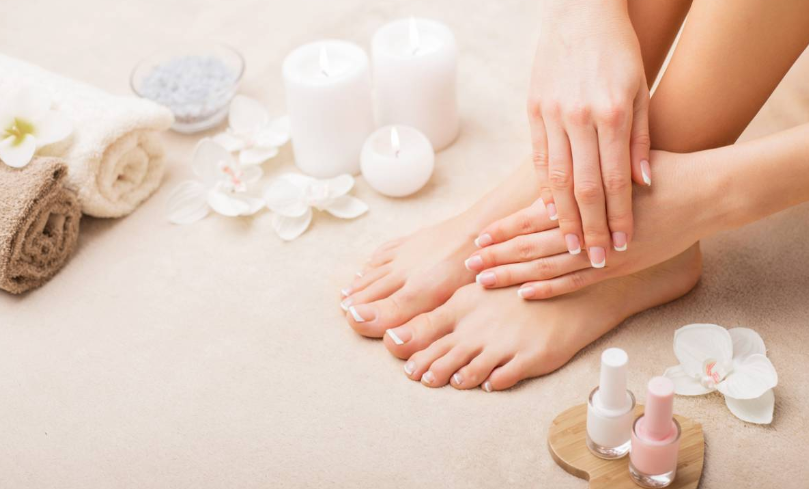Table of Contents:
- The Importance of Foot Care
- Common Foot Problems and Solutions
- Daily Foot Care Routine
- Choosing Proper Footwear
- When to See a Specialist
- DIY Foot Care Tips
The Importance of Foot Care
Proper foot care is vital in preserving overall health and mobility. The feet are the foundation of our body and undergo a tremendous amount of stress each day. From walking and exercising to standing for extended periods, our feet bear the brunt of our daily activities. Ignoring foot health can lead to severe issues, such as infections, pain, and even complications in other parts of the body, such as the knees and back. Consulting a certified pedorthist in your area can be an essential step towards preventing and managing foot-related problems.
The American Podiatric Medical Association highlights that regular foot care can prevent many severe problems and improve the quality of life. Routine foot care can avoid conditions like fungal infections, corns, calluses, and more severe issues like diabetes-related foot problems. Simple routines and proper care can keep your feet healthy and free from common issues. For example, ensuring shoes fit correctly can prevent blisters and bunions, thus maintaining mobility and comfort.
Common Foot Problems and Solutions
Several foot problems are common but can be managed with proper care and knowledge. Understanding these issues and their solutions is crucial for maintaining foot health:
- Bunions: Bunions are caused by a misalignment in the big toe joint, leading to swelling and pain. Often, they result from wearing narrow, tight shoes. Treatment includes wearing wider shoes to accommodate the bunion, using padding to reduce friction, and, in severe cases, surgery to realign the toe joint.
- Plantar Fasciitis: This condition is characterized by the inflammation of the tissue connecting the heel to the toes, causing heel pain, especially in the morning. Treatments include stretching exercises, using orthotic inserts in shoes, and physical therapy.
- Fungal Infections: Athlete’s foot and toenail fungus are common fungal infections caused by damp environments. Keeping feet dry, changing socks frequently, and using antifungal powders can prevent these issues. Over-the-counter antifungal treatments are effective, but persistent infections might require prescription medications.
Daily Foot Care Routine
Implementing a consistent daily foot care routine can significantly enhance your foot health. Simple steps can keep your feet clean, moisturized, and free from minor issues that can escalate:
- Wash your feet daily: Use soap and water to thoroughly cleanse your feet, removing dirt and bacteria accumulated throughout the day.
- Dry your feet well: Thoroughly drying your feet is essential to preventing fungal infections, especially in the spaces between your toes. Conditions like athlete’s foot can arise from the breeding of bacteria and fungi in damp surroundings.
- Moisturize your feet: Using a moisturizer helps stop dry, cracked skin, which can cause pain and infections. Make sure you only moisturize the top and bottom of your feet—avoid getting moisturizer in the spaces in between your toes.
- Trim your toenails: To prevent ingrown toenails, cut them straight across without cutting them too short, as this can cause discomfort and increase the risk of infections.
Choosing Proper Footwear
Footwear plays a crucial role in maintaining foot health. Your shoes can either support and protect your feet or contribute to foot problems. Select shoes that provide adequate support and fit well. Avoid shoes with high heels for prolonged periods, as they can cause various foot issues like plantar fasciitis and bunions. The Mayo Clinic recommends ensuring your shoes have a proper fit and are appropriate for your activities, whether for work, exercise, or casual use.
When choosing shoes, consider the following:
- Arch Support: Shoes with proper arch support can help distribute weight evenly across your feet, reducing strain on your arches.
- Cushioning: Adequate cushioning can absorb shock and reduce impact, making your feet more comfortable during extended periods of wear.
- Breathability: Select shoes made of breathable materials to keep your feet dry and prevent fungal infections.
- Fit: Your shoes should be snug but not tight. Ensure there’s enough space for your toes to move freely to avoid conditions such as bunions and blisters.
When to See a Specialist
If you experience persistent pain, swelling, or any abnormal symptoms in your feet or ankles, it’s best to consult a specialist, such as a podiatrist. Persistent issues that don’t improve with home treatments may indicate more severe problems requiring professional intervention. Working with a medical professional ensures that minor issues don’t escalate into significant problems, preserving mobility and quality of life.
Some signs that you should see a specialist include:
- Severe pain that doesn’t improve with rest or over-the-counter medications
- Open sores or wounds that don’t heal
- Soreness and discomfort affecting your daily activities
- Signs of infection, such as redness, warmth, and swelling

